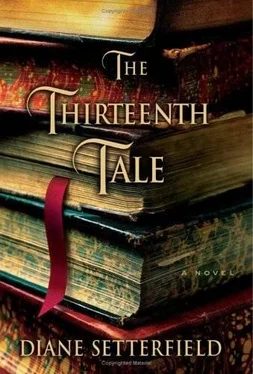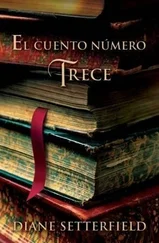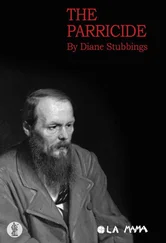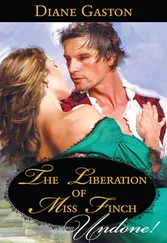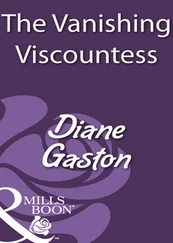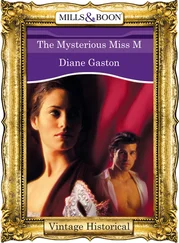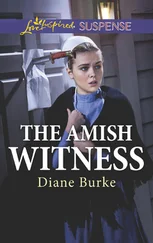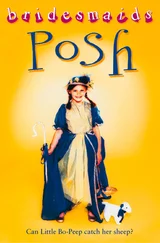And then a growing hubbub: "What is it? What's happened?"
"Taken! From the garden! In the perambulator!"
"You two go that way, and you others go that way."
"Run and fetch her husband, somebody."
All the noise, all the commotion at the front of the house.
At the back everything was quiet. Merrily's washing bobbed about in the lazy sunshine, Mr. Griffin's spade rested tranquilly in the well-turned soil, Emmeline caressed the silver spokes in blind, quiet ecstasy and Adeline kicked her out of the way so that they could get the thing moving.
They had a name for it. It was the voom.
They dragged the perambulator along the backs of the houses. It was harder than they had thought. For a start the pram was heavier than it appeared, and also they were pulling it along very uneven ground. The edge of the field was slightly banked, which tilted the pram at an angle. They could have put all four wheels on the level, but the newly turned earth was softer there, and the wheels sank into the clods of soil. Thistles and brambles snagged in the spokes and slowed them down, and it was a miracle that they kept going after the first twenty yards. But they were in their element. They pushed with all their might to get that pram home, gave it all their strength, and hardly seemed to feel the effort at all. They made their fingers bleed tearing the thistles away from the wheels, but on they went, Emmeline still crooning her love song to it, giving it a surreptitious stroke with her fingers from time to time, kissing it.
At last they came to the end of the fields and the house was in sight. But instead of making directly for it they turned toward the slopes of the deer park. They wanted to play. When they had pushed the pram to the top of the longest slope with their indefatigable energy, they set it in position. They lifted out the baby and put it on the ground, and Adeline heaved herself into the carriage. Chin on knees, holding on to the sides, she was white-faced. At a signal from her eyes, Emmeline gave the pram the most powerful push she could manage.
At first the pram went slowly. The ground was rough, and the slope, up here, was slight. But then the pram picked up speed. The black carriage flashed in the late sun as the wheels turned. Faster and faster, until the spokes became a blur and then not even a blur. The incline became steeper, and the bumps in the ground caused the pram to shake from side to side and threaten to take off.
A noise filled the air.
"Aaaaaaaaaaaaaaaaaaaaa! "
Adeline, shrieking with pleasure as the pram hurtled downhill, shaking her bones and rattling her senses.
Suddenly it was clear what was going to happen.
One of the wheels struck against a piece of rock sticking out from the soil. There was a spark as metal screeched against stone, and the pram suddenly was speeding not downhill but through the air, flying into the sun, wheels upward. It traced a serene curve against the blue of the sky, until the moment when the ground heaved up violently to snatch it, and there came the sickening sound of something breaking. After the echo of Adeline's exhilaration reverberating in the sky, everything was suddenly very quiet.
Emmeline ran down the hill. The wheel facing the sky was buckled and half wrenched off; the other was still turning, slowly, all its urgency lost.
A white arm extended from the crushed cavity of the black carriage and rested at a strange angle on the stony ground. On the hand were purple bramble stains and thistle scratches.
Emmeline knelt. Inside the crushed cavity of the carriage, all was dark.
But there was movement. A pair of green eyes staring back.
"Voom!" she said, and she smiled.
The game was over. It was time to go home.
Aside from the story itself, Miss Winter spoke little in our meetings. In the early days I used to say "How are you?" on arriving in the library, but she said only, "111. How are you?" with a bad-tempered edge to her voice as though I was a fool for asking. I never answered her question, and she didn't expect me to, so the exchanges soon came to an end. I would sidle in, exactly a minute early, take my place in the chair on the other side of the fire and take my notebook out of my bag. Then, with no preamble at all, she would pick up her story wherever she had left off. The end of these sessions was not governed by the clock. Sometimes Miss Winter would speak until she reached a natural break at the end of an episode. She would pronounce the last words, and the cessation of her voice had a finality about it that was unmistakable. It was followed by a silence as unambiguous as the white space at the end of a chapter. I would make a last note in my book, close the cover, gather my things together and take my leave. At other times, though, she would break off unexpectedly, in the middle of a scene, sometimes in the middle of a sentence, and I would look up to see her white face tightly drawn into a mask of endurance. "Is there anything I can do?" I asked, the first time I saw her like this. But she just closed her eyes and gestured for me to go. When she finished telling me the story of Merrily and the perambulator, I put my pencil and notebook into my bag and, standing up, said,
"I shall be going away for a few days." "No." She was severe. "I'm afraid I must. I was only expecting to be here for a few days initially, and I've been here for over a week. I don't have enough things with me for a prolonged stay." "Maurice can take you to town to buy whatever you need." "I need my books…" She gestured at her library shelves. I shook my head. "I'm sorry, but I really have to go." "Miss Lea, you seem to think that we have all the time in the world.
Perhaps you do, but let me remind you, I am a busy woman. I do not want to hear any more talk of going away. Let that be the end of it." I bit my lip and for a moment felt cowed. But I rallied. "Remember our agreement? Three true things? I need to do some checking." She hesitated. "You don't believe me?" I ignored her question. "Three true things that I could check. You gave me your word." Her lips tightened in anger, but she concurred. "You may leave on Monday. Three days. No more. Maurice will take you to the station."
I was in the middle of writing up the story of Merrily and the perambulator when there came a knock at my door. It was not time for dinner, so I was surprised; Judith had never interrupted my work before.
"Would you come to the drawing room?" she asked. "Dr. Clifton is here. He would like a word with you."
As I entered the room, the man I had already seen arriving at the house rose to his feet. I am no good at shaking hands, so I was glad when he seemed to decide not to offer me his, but it left us at a loss to find some other way to start.
"You are Miss Winter's biographer, I understand?"
"I'm not sure."
"Not sure?" "If she is telling me the truth, then I am her biographer. Otherwise I am just an amanuensis." "Hmm." He paused. "Does it matter?" "To whom?" "To you." I didn't know, but I knew his question was impertinent, so I didn't answer it. "You are Miss Winter's doctor, I suppose?" "I am." "Why have you asked to see me?" "It is Miss Winter, actually, who has asked me to see you. She wants me to make sure you are fully aware of her state of health." "I see." With unflinching, scientific clarity, he proceeded to his explanation.
In a few words he told me the name of the illness that was killing her, the symptoms she suffered, the degree of her pain and the hours of the day at which it was most and least effectively masked by the drugs. He mentioned a number of other conditions she suffered from, serious enough in themselves to kill her, except that the other disease was going to get there first. And he set out, as far as he was able, the likely progression of the illness, the need to ration the increases in dosage in order to have something in reserve for later, when, as he put it, she would really need it.
Читать дальше
